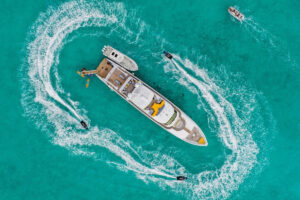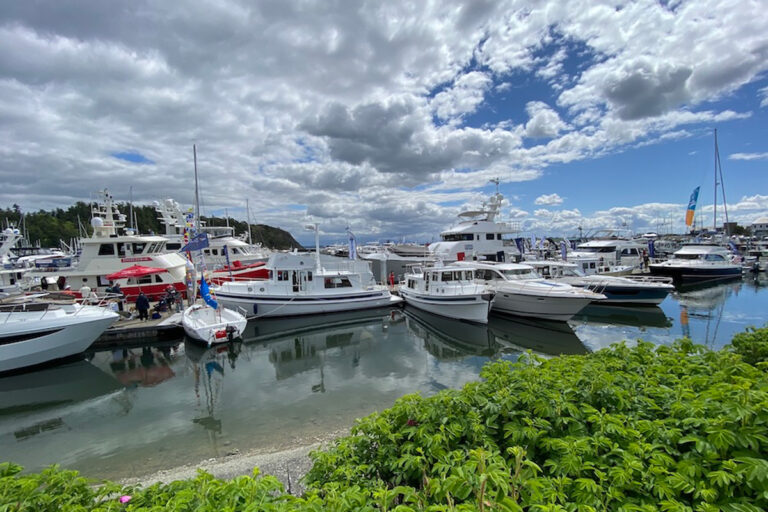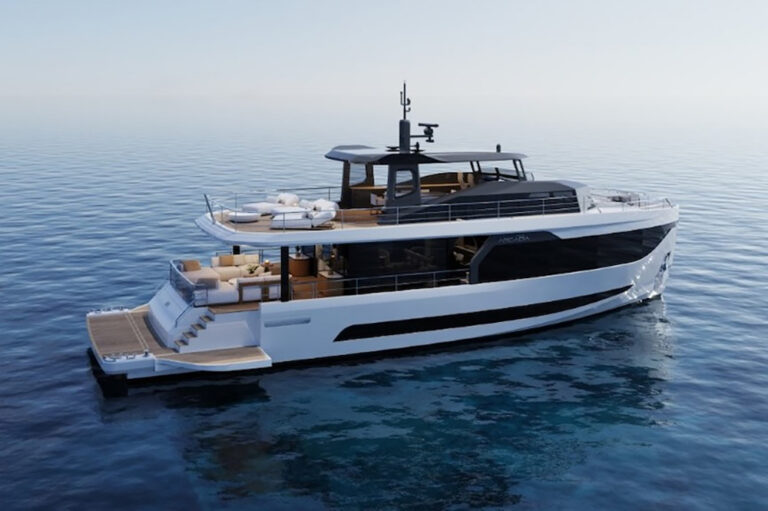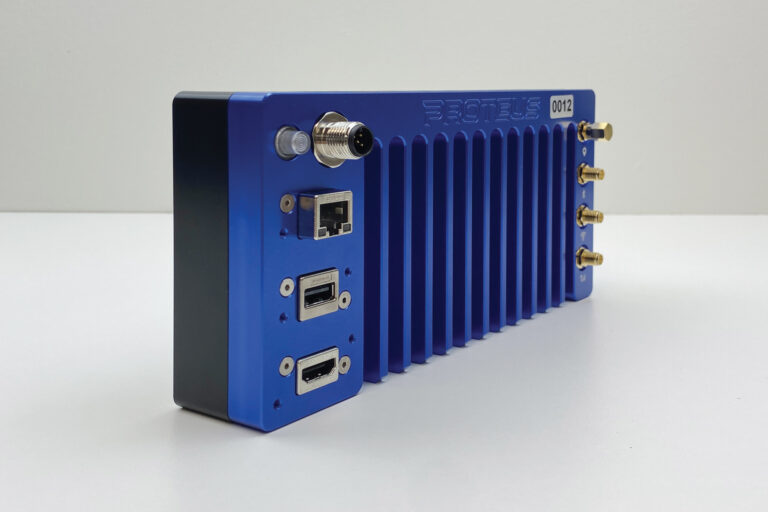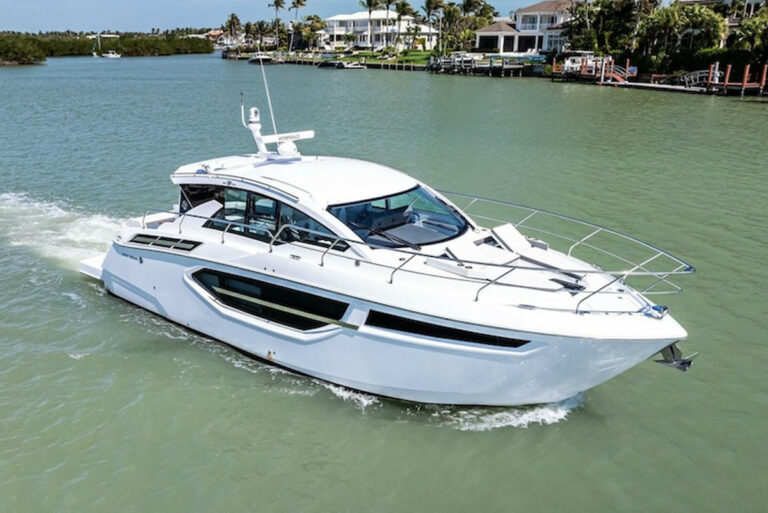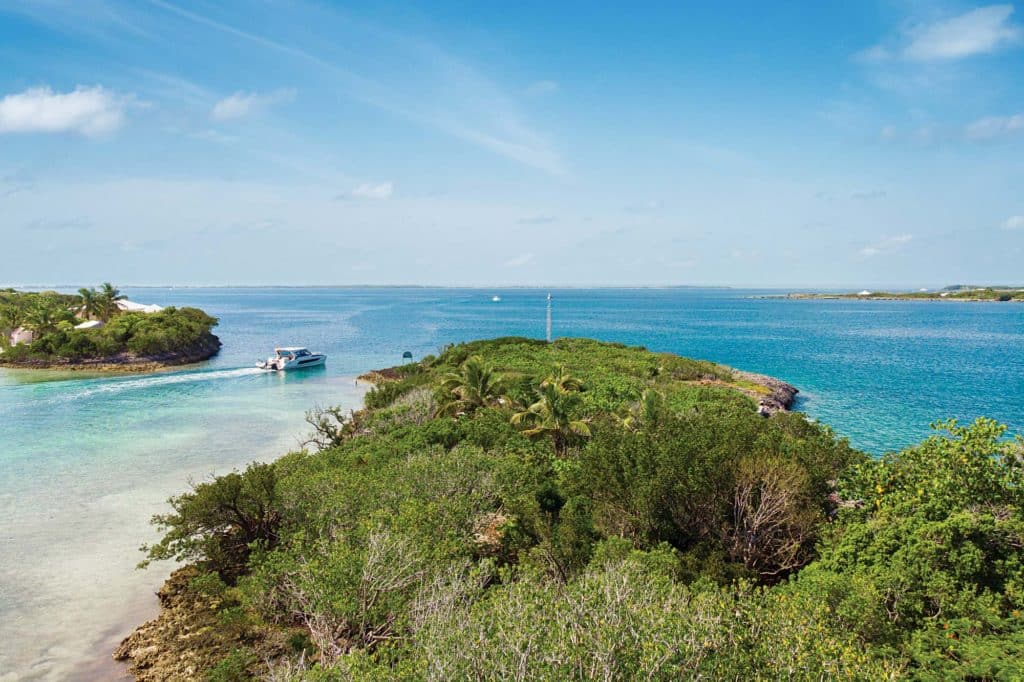
As restrictions on travel continue to ease worldwide (we all hope), planning a bareboat getaway of friends and family will be a great socially distanced vacation. For those in colder climes, bareboating is a chance to find warm water and palms blowing in tropical breezes. For others, bareboating can be an escape from local waters.
Bareboating means that the boat is supplied sans captain or crew. The bareboater handles everything, including anchoring, cooking and planning the itinerary. In terms of dollars and cents, a bareboat charter competes favorably with a vacation at a good resort hotel, especially when all those shoreside extras such as resort fees and room service are factored into the cost equation. Aboard a bareboat, all meals come with a view, as do watery delights such as snorkeling on coral reefs or exploring sandy beaches.
Like everything, a bareboat charter is going to be what boaters make of it. I know people who have gone off to exotic locales with incredible scenery and then returned complaining about high humidity. On the other hand, I enjoyed a delightful charter in Scotland where wind and rain were the one constant. My memories are of a warm cabin with friends and of shrugging off my foulies by the roaring fire in a pub. Those who get the most out of bareboating are those who are flexible, willing to adjust their plans, and believe the important thing is to enjoy the journey.
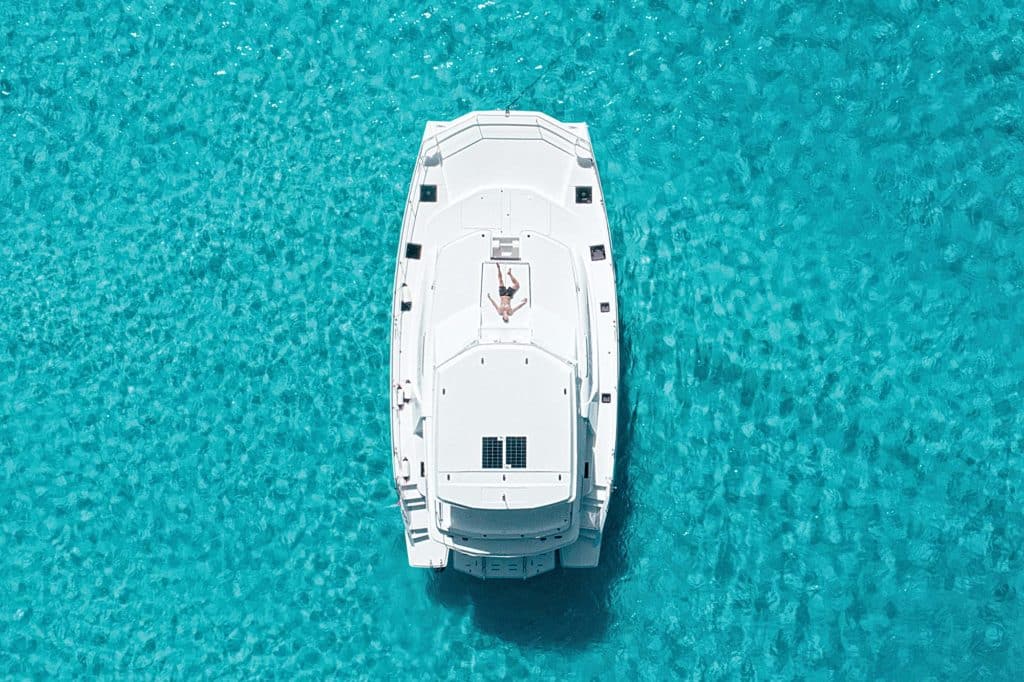
Relatively benign areas to try bareboating are in the British Virgin Islands, the Bahamas and the San Juan Islands. These locations have protected waters, short runs between harbors, well-marked aids to navigation and predictable weather forecasting. Skip the swirling Hebrides off Scotland until some miles are under the hull, and remember that foreign waters mean unfamiliar navigation aids as well as foreign languages.
Location should also be dictated by the time of year, as well as the desired cruising climate. Winter eliminates much of Europe and parts of North America, while the midsummer Caribbean can be downright steamy. The Pacific Northwest is temperate in summer, cool in spring and fall, and wet in winter.
For the experienced helmsman, everything is explained during a comprehensive pre-charter briefing that used to be done entirely at the bareboat hub, but that is now becoming a social-distancing-friendly hybrid of at-home learning and in-person checkout. When clients leave the dock, they have a good understanding of the boat, its systems, and everything from hazards to restaurants on local charts.
And for clients who need a little more help to feel comfortable, Ian Pedersen of The Moorings says, “If desired, we offer a friendly skipper at no charge for a half day to provide one-on-one instruction to familiarize yourself with your yacht or brush up on your skills.”
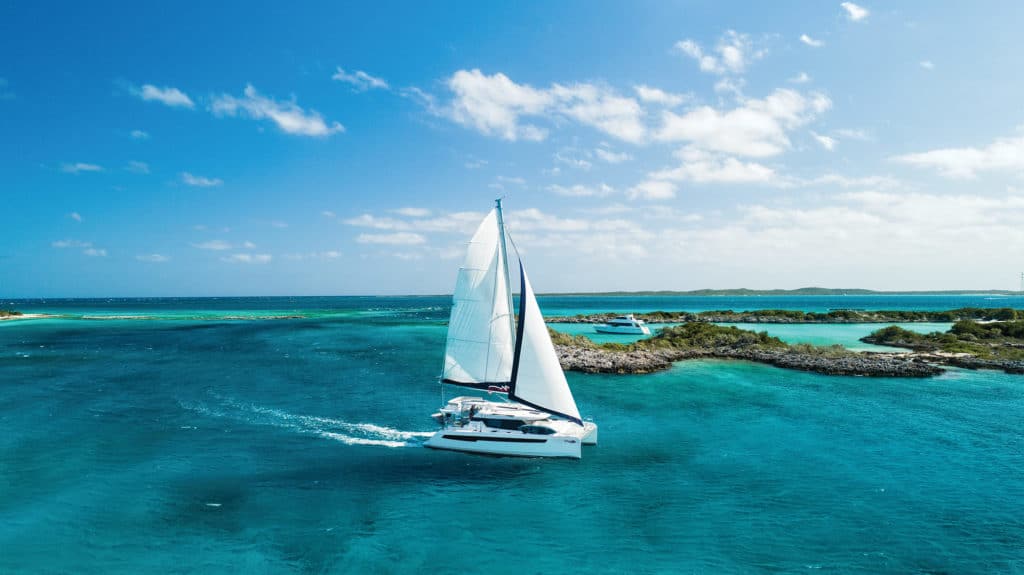
A skipper can also stay aboard for the duration, and this can be a good thing. The skipper will take one of the staterooms and will need to be fed, but clients will save on the cost of an insurance waiver for damage. The skipper also knows the best anchorages, beaches, reefs for snorkeling and small bistros.
Packing for a bareboat or skippered charter should be light; some bareboaters get by for a week with a bathing suit, two shirts and a pair of shorts. Realistically, and depending on the area, take foul-weather jackets, comfy clothes for the boat, and dressier clothes for going ashore for dinners (even in the casual Caribbean). It all goes into a duffel bag, which can be stowed on board. Some charter companies will store a hard suitcase ashore, while charter guests can repack into a duffel before the trip starts.
In fact, charter companies come in all shapes and sizes, including international corporations and mom and pop bases. The larger companies have the advantage shared by car-rental companies: They standardize their fleets and often have boats built specifically for their needs. Larger companies tend to have stockpiles of equipment for repairs, while smaller companies have more-eclectic offerings, making them perfect for anyone wanting to try out a boat model before purchasing.
Raul Bermudez of MarineMax Vacations, for instance, says the company’s Aquila powercats are available for charter in the BVI and for sale through MarineMax dealerships.
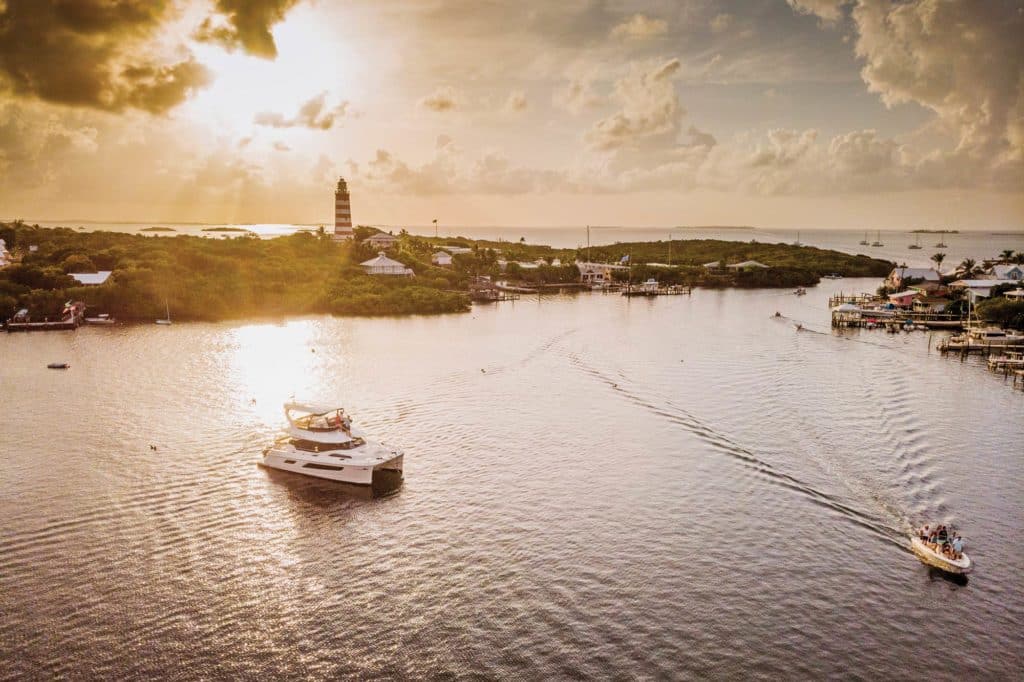
Deciding whom to bring along on the boat is another consideration. Guests should be people who can live together for a week or so in close quarters. Family is one thing, but consider personal habits such as smoking or drinking, as well as common interests.
Deciding on the boat can mean all kinds of options. Catamarans have swept the bareboat-charter industry, offering voluminous accommodations with separation (no shared bulkheads to hear anyone snoring), plus open salons, cockpits and flybridge areas. Cats and monohulls are available in all shapes and sizes, in both power and sail. When looking at accommodations plans, note that using convertible dinettes for sleeping is a pain of making and remaking beds daily, so try to get a stateroom for all aboard.
Whatever the platform and wherever the destination, remember that taking a bareboat charter is all about attitude. Go into it expecting fun, relaxation and excitement, and that’s exactly where the trip will lead.
Read the Contract
Before signing on the dotted line, understand all the fine print of a bareboat contract. How much is the deposit, and when is it refundable? What is your liability, and how much is indemnity insurance through the charter company? What if your boat has a problem? When is the boat available to you, and when do you have to return it?
Coronavirus Protocols
Charter companies have always faced the challenge of cleaning returned boats and preparing them for new guests, but COVID-19 has amplified the issue. Ask what the company’s protocols are to ensure a hospital- style scouring. “We had a head start at MarineMax Vacations since we always spaced our returns and departures at least a day apart,” says Raul Bermudez, vice president of charters. “That gives us more than enough time to thoroughly sanitize our boats before handing them to new guests.”
Need a License?
For all destinations, guests submit a résumé of boating experience to the charter company before booking. That résumé should show not only the client’s time on the water but also their familiarity with similar boats. In many bareboat destinations in Europe, clients need a formal license such as the International Certificate of Competence. Americans can get an International Proficiency Certificate from the American Sailing Association or an Inshore Powerboat Cruising card from US Powerboating. A VHF radio operator’s license is also required in many areas.
Take the next step: marinemax.com/vacations; moorings.com

